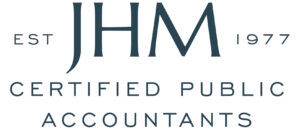
Our guide and what we know about this new act affecting many.
As of January 1, 2024, a new act has taken effect per the Financial Crimes Enforcement Network (FinCEN), which goes by the name of the Corporate Transparency Act (CTA). The Corporate Transparency Act’s purpose is to help prevent and combat money laundering, terrorist financing, corruption, tax fraud, and other illicit activity while minimizing burden on reporting entities.
Due to this new act, the CTA requires certain companies to file a Beneficial Ownership Interest (BOI) report with the FinCEN, and they have even provided a website to access this online. Filing is free of charge, simple, and secure. Here at JHM, we want to ensure that we get our clients important tax updates, especially regarding legal matters such as this.
If you aren’t familiar, you may wonder just what a BOI report consists of. The report itself will consist of certain facts regarding the company. These include: legal name and d/b/a names it conducts business under, address, jurisdiction of formation, and taxpayer identification number.
Your business entity may be required to file, which is why we want to spread this new information as much as we can. According to the FinCEN website, there are two reporting entities under the CTA: domestic reporting companies and foreign reporting companies.
Domestic reporting companies are those who are corporations, limited liability companies, or any other entity created by filing a document with a Secretary of State of similar office in the United States. Foreign reporting companies include domestic reporting companies and were formed under the law of a foreign country that are registered to do business in the United States by filing with a Secretary of State or similar office. Small businesses can be exempt from filing if your entity: employs more than 20 full-time employees in the U.S, maintains a physical office in the U.S, and filed a federal tax return in the prior year reporting more than $5m of gross receipts not including foreign gross receipts. You must file if you have under 20 employees or under $5M gross receipts. Anything over those are exempt as this is going after the smallest of the small businesses.
This new law, however, does exclude certain entities. Those include: any company reporting under the Securities and Exchange Commission, government authorities, banks or credit unions, investment companies or advisors, insurance companies, accounting firms, public utilities, and any tax-exempt entity.
Who are considered the beneficial owners of an entity is also crucial to filing as well. These individuals with these qualities are able to exercise control or ownership over an entity that has to file: has titles such as, President, CEO, COO, CFO, general counsel, or similar, has authority to appoint or remove officers and directors, has substantial influence over the direction of the entity and major decisions, and has any other form of control over the company. For each beneficial owner, you can expect to provide: legal name, birth date, home address, an identifying number from a license or passport, and an image of the document the number is from.
If you registered a reporting entity before January 1, 2024, you will have until January 1, 2025 to file. If you own an entity created after January 1, 2024, you will have 90 calendar days to file a BOI report. This deadline runs out from the time notice is given, however. And finally, entities created after January 1, 2025, will have 30 days to file. With these deadlines, you can expect JHM to send our periodic reminders as time passes throughout the year regarding this new law.
Failure to file a BOI report within the deadline may result in civil or even criminal penalties, including civil penalties up to $500 for each day not filed, or criminal penalties including imprisonment for up to two years and/or a fine up to $10,000.
JHM will not be filing any reports regarding the BOI, but we encourage questions as well as reaching out to your attorney on this process.
Should you have any questions or concerns, please reach out to your JHM contact, or call us at 423.756.0052. We will be diligent as we continue to learn about new tax and business law changes.
Written by Kenzie Huling





